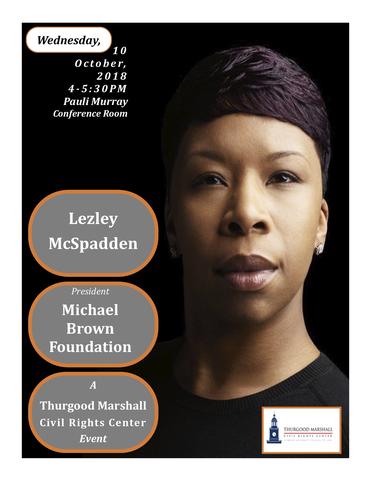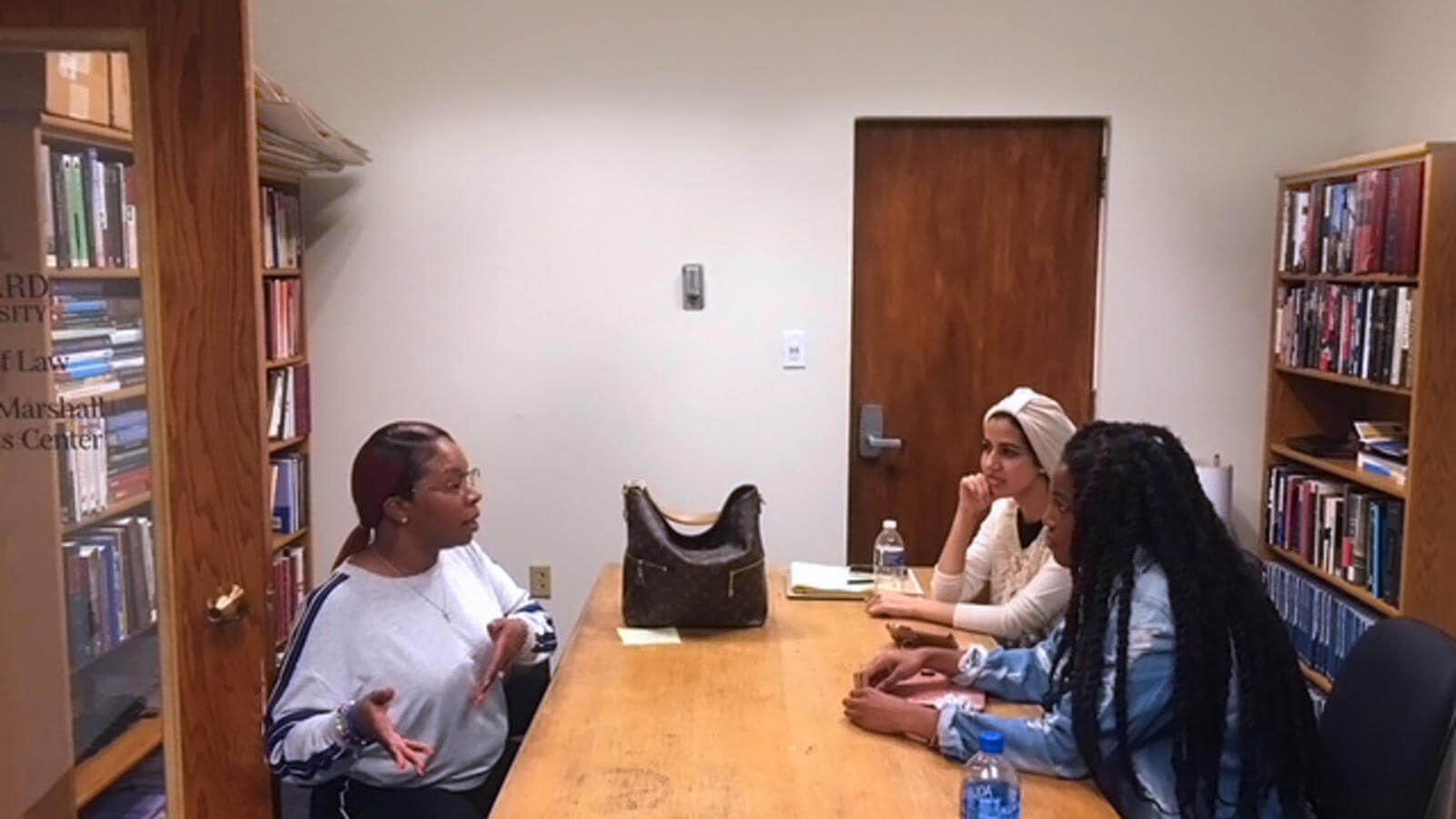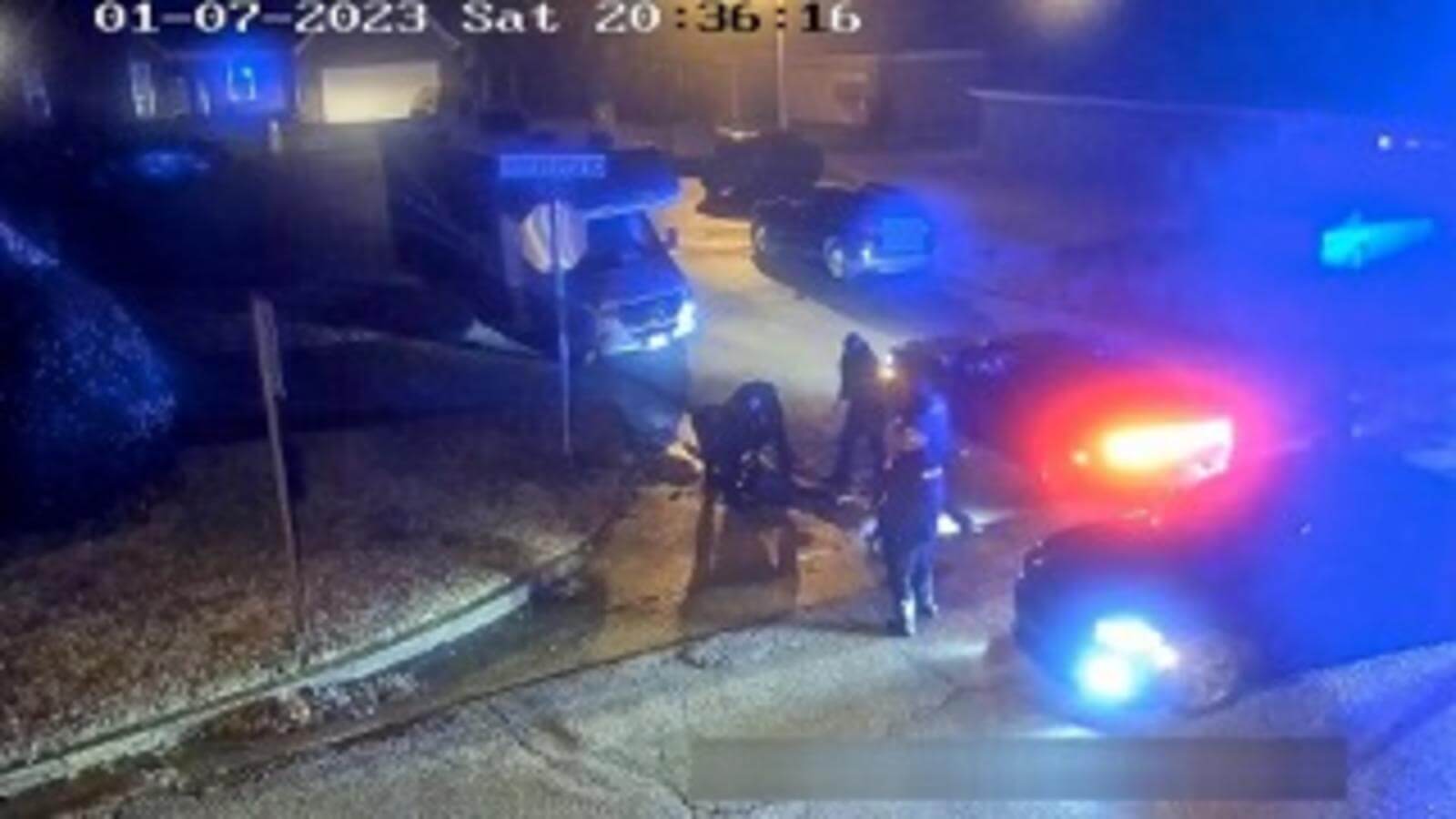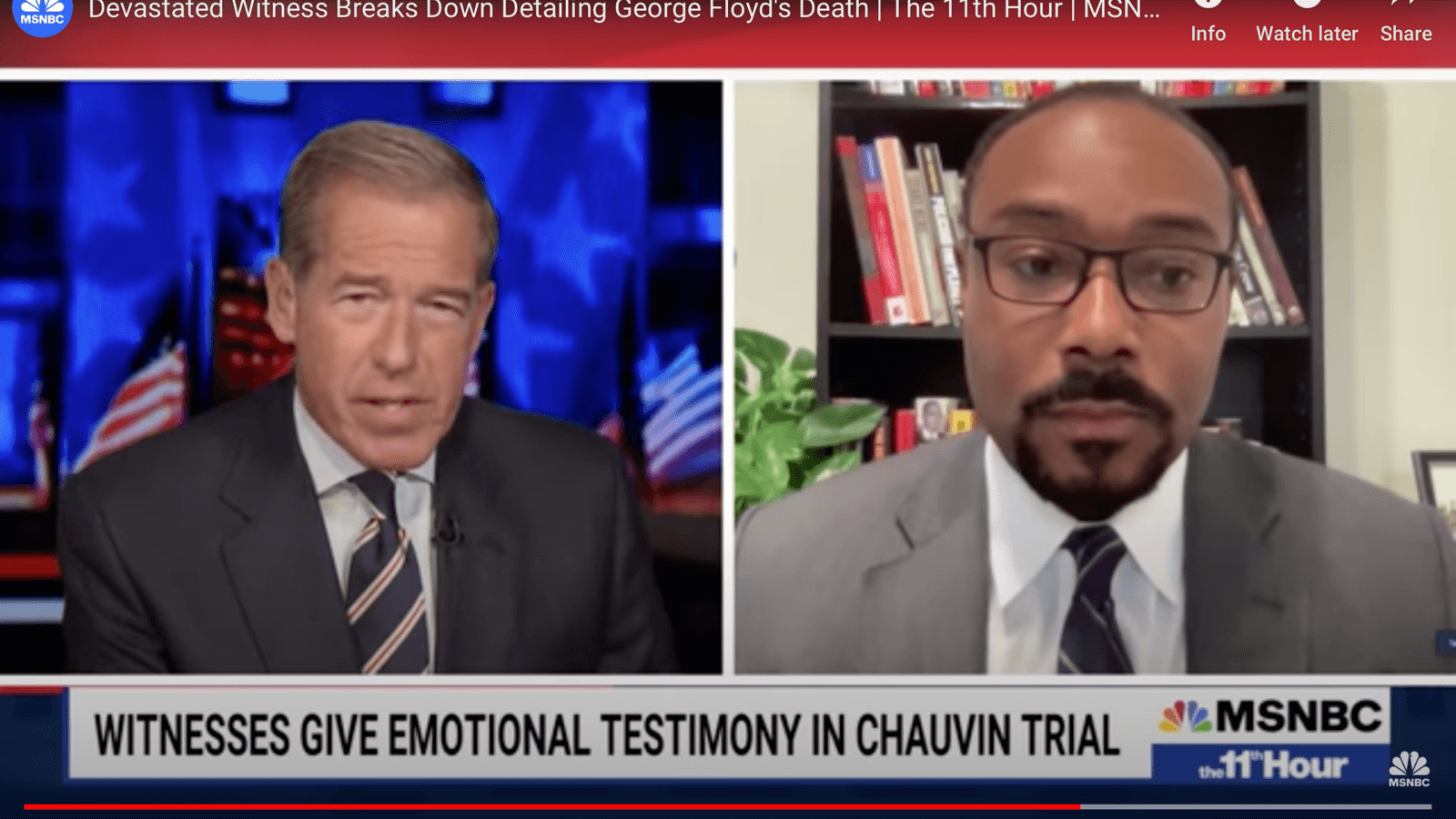
Redefining Public Safety
Our Work in Addressing Police Violence
The Thurgood Marshall Civil Rights Center at Howard University School of Law aims to outline concrete steps for what the United States government should do in order to protect Black communities, including divesting from police institutions and reinvesting in life-affirming alternatives for Black and other communities of color.
Executive Director Justin Hansford joins Democracy NOW! to discuss alternatives to modern policing
H.R.8914: The Helping Families Heal Act
In October 2018 Lezley McSpadden, the mother of Michael Brown who was killed by police in Ferguson, Mo. in 2014, partnered with the Thurgood Marshall Civil Rights Center at the Howard University School of Law.
The focus of her work with the center involved passing legislation that provided mental health services to families and communities affected by police violence. The efforts of this partnership resulted in the introduction of the Helping Families Heal Act.
Learn more about TMCRC's advocacy of this bill on Congresswoman Cori Bush's web…
George Floyd Protest Response
With the help of Howard University law students, we:
- Filed a temporary injunction against unconstitutionally imposed curfews in DC and New York (both curfews were lifted after filing the motions);
- Testified before the Inter-American Commission on Human Rights about police brutality in the wake of George Floyd (the commission has now publicly condemned the police brutality in this case);
- Hosted legal observer training for over 200 lawyers/students to support protesters;
- Responded to a call for volunteers to pick up protesters after they were released from jail;
- Provided support for students seeking to contact their local city council in an effort to create meaningful change; and
- Produced a detailed white-paper on the unequal impact of Covid-19 on policing, as well as other issues in the Black community.
Confronting Police Abuse
Thurgood Marshall Center in the News
Immigration coalition, civil rights groups threaten to sue de Blasio over 'unconstitutional' curfew
The trope of “outside agitators” at protests, explained
Ex-officers in George Floyd case may seek venue change, raising questions of bias
Georgetown University Police Reform Discussion
For further reading: The End of Policing by Alex S. Vitale



